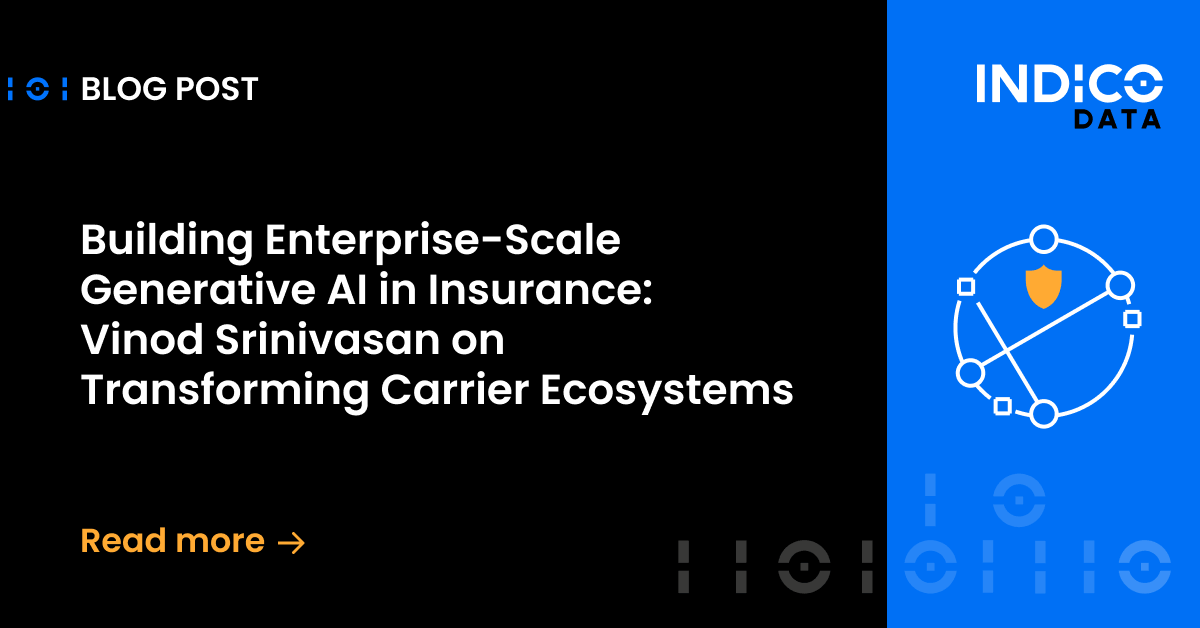As is so often the case with technological advances, there’s a fair amount of misinformation regarding how automation and artificial intelligence are going to replace humans in various fields, taking away lots of jobs. From our experience, that is typically not the case. Rather, companies are using AI to augment their employees, often relieving them of repetitive, mundane tasks they would rather not be doing in the first place.
Intelligent automation tools can also be used to aid humans in doing their jobs more effectively. Consider an insurance analyst working through analyzing customer claims, where instead of the analyst having to manually comb through hundreds of documents to find relevant information, behind the scenes an AI application automatically classifies and extracts the relevant data and pushes it downstream saving the analyst countless hours.
A large part of the work being done by the analyst is boring and monotonous. Intelligent Process Automation solutions can automate these tasks enabling the agents to focus on solving more complicated problems.
McKinsey: AI-Employee Partnerships
An executive briefing report published last year by the McKinsey Global Institute supports the notion of AI-employee partnerships. The report said while nearly all occupations would be affected by AI automation, only about 5 percent of occupations “could be fully automated by currently demonstrated technologies.” The more likely scenario is that portions of jobs will be automated. “We find that about 30 percent of the activities in 60 percent of all occupations could be automated. This means that most workers—from welders to mortgage brokers to CEOs—will work alongside rapidly evolving machines,” the report said.
The good news is the work intelligent automation tools handle tends to be tedious chores that employees are happy not to do anyway.
Consider the claims handling process in the insurance business, for example. A human has to manually take various forms of structured and unstructured data – the customer’s account number, license number, Social Security number, photos of the damage, and so forth – and manually enter it into the claims system for processing. Intelligent process automation tools can automate insurance claims processing, extracting and normalizing the unstructured data, enabling company employees to focus on higher-value, more enjoyable and more meaningful work.
Similarly, when a financial services company acquires a new customer, it has to gather various types of information and documents to get the customer set up. IPA solutions can be used to automate the process of classifying and extracting unstructured data, and normalizing it for entry to the bank’s digital management system. This not only relieves employees of such mundane tasks, but improves the accuracy and speed of the onboarding process, driving improved customer satisfaction and faster time to revenue for the bank.
Some Workers Displaced, More Added
While it’s true that automation may displace some workers, the McKinsey report expects the number will be fairly minimal – about 15% of the global workforce from 2016 to 2030, or about 400 million workers. But that will be more than offset by demand for new jobs – between 555 million and 890 million by 2030, McKinsey says – including from occupations that “we cannot currently imagine.”
As the report states: “Moreover, technology itself has historically been a net job creator. For example, the introduction of the personal computer in the 1970s and 1980s created millions of jobs not just for semiconductor makers, but also for software and app developers of all types, customer-service representatives, and information analysts.”
AI technology is likewise driving demand for employees with experience in fields such as data science and statistics, as well as those who understand how to apply the technology to solve business problems.
Intelligent Process Automation: No AI Experience Required
Part of the beauty of Intelligent Process Automation is that you don’t need data science experience to be successful. The platform is intended to be used by the business people and operations professionals who best understand and are closest to the processes to be automated. So while the McKinsey report referenced above focuses on the creation of data and analytics jobs, we are projecting that we will see IPA drive job creation across the organization.
To learn more about how to automate workflows and make your team more productive – visit our Intelligent Process Automation page.


